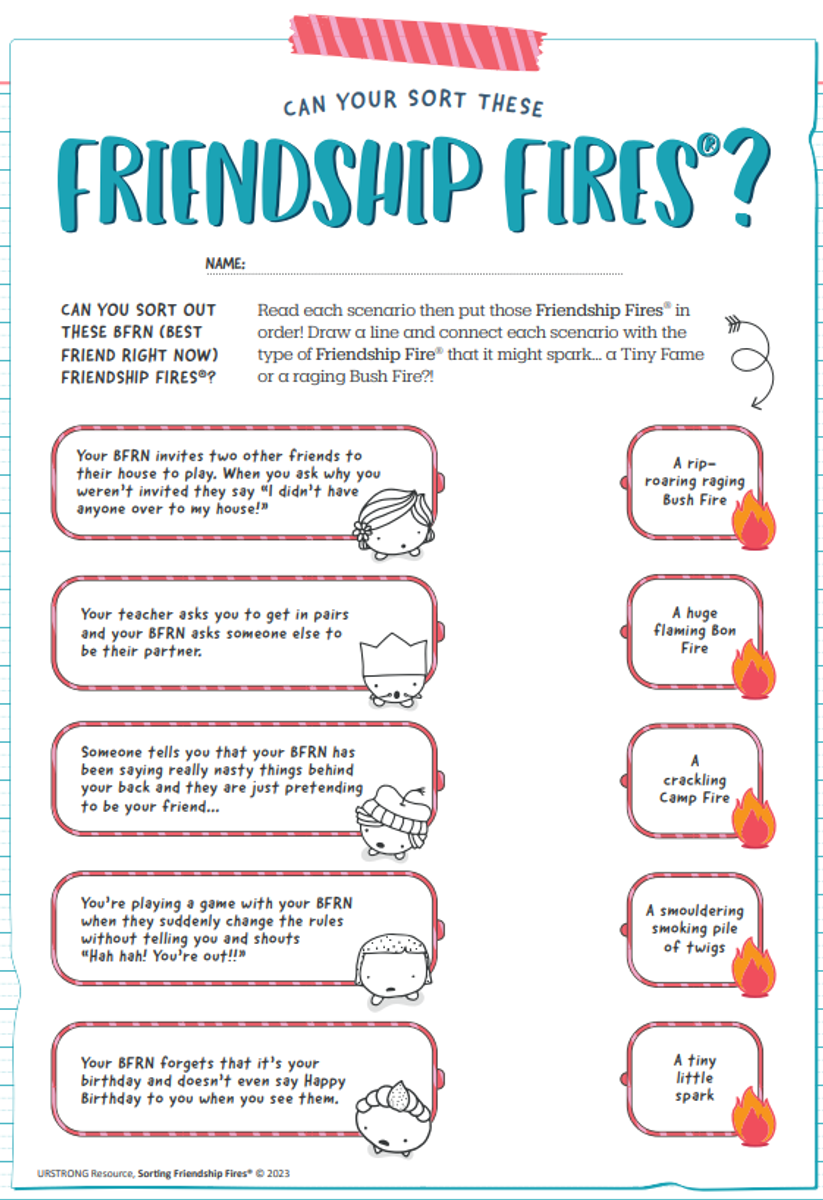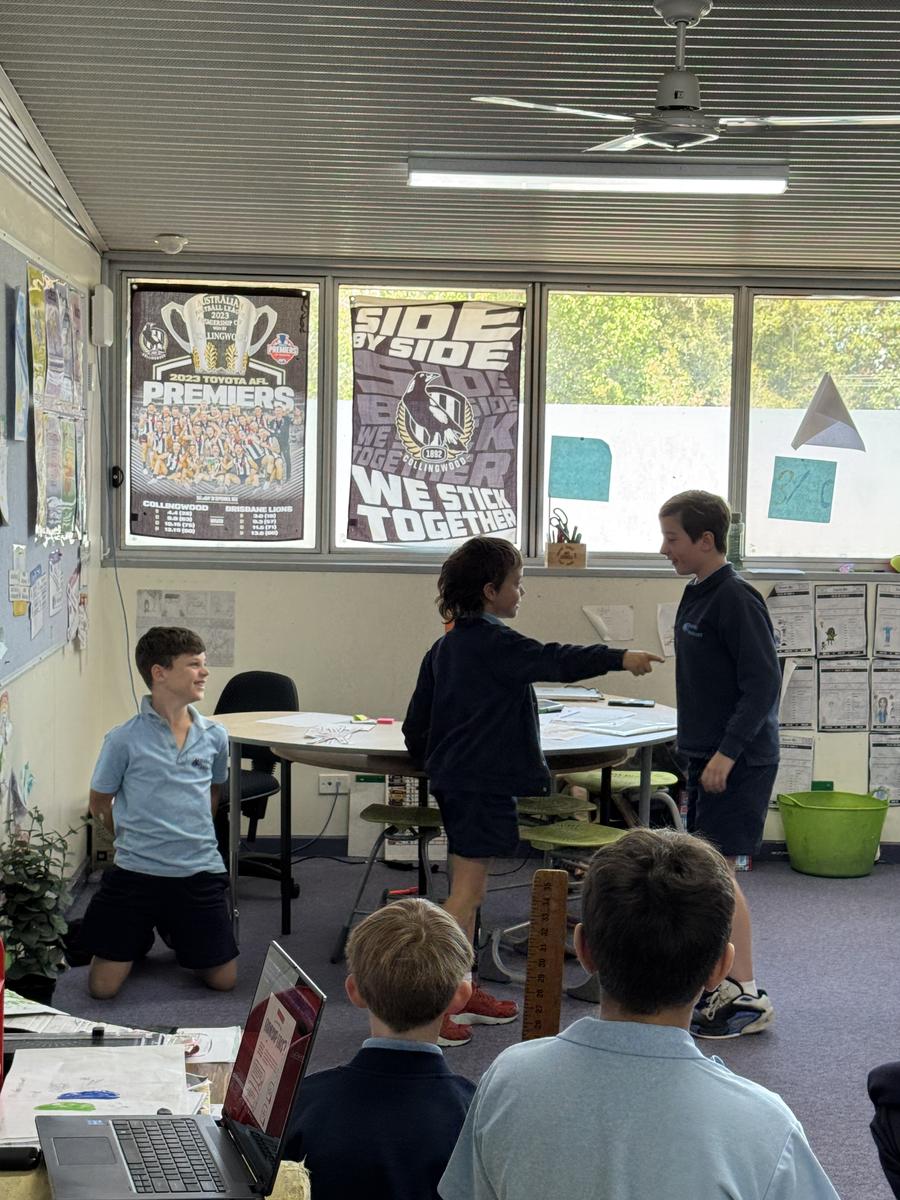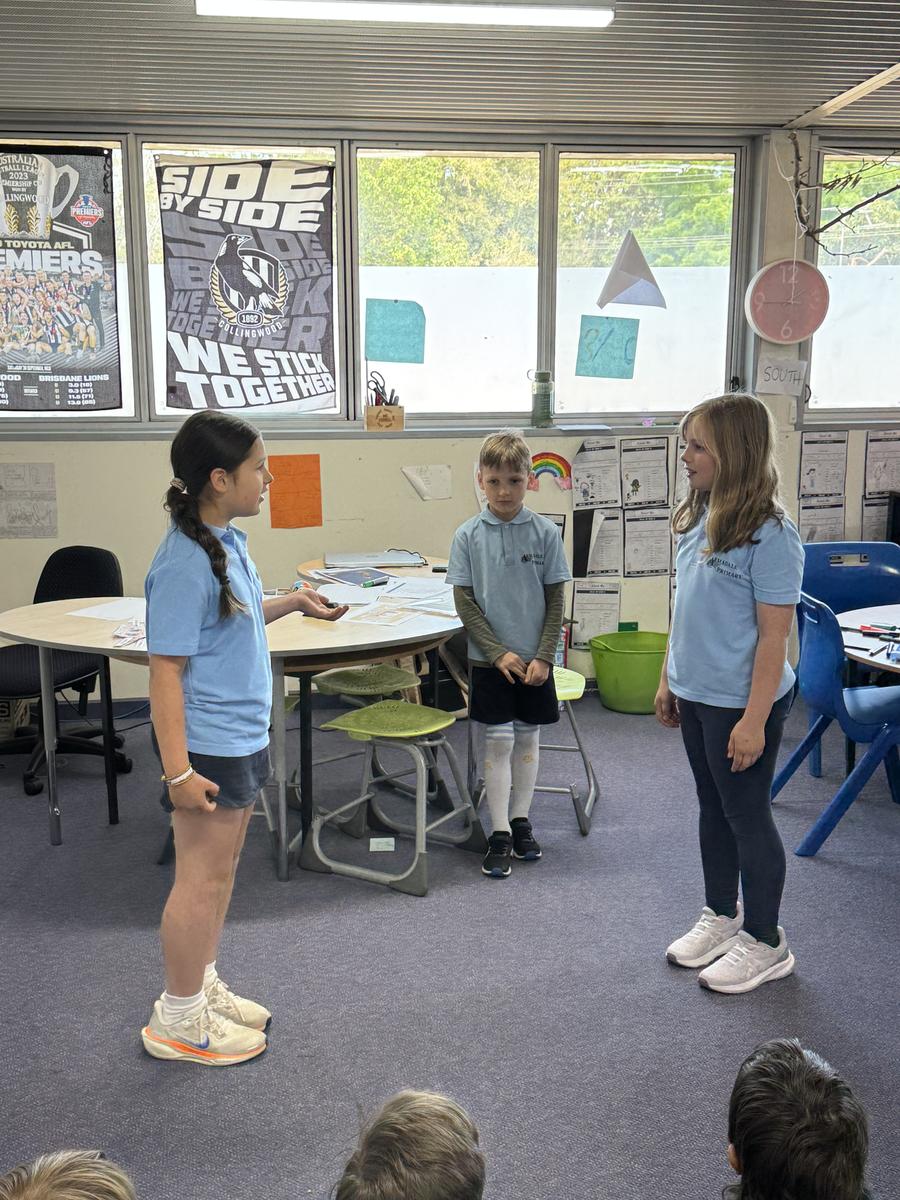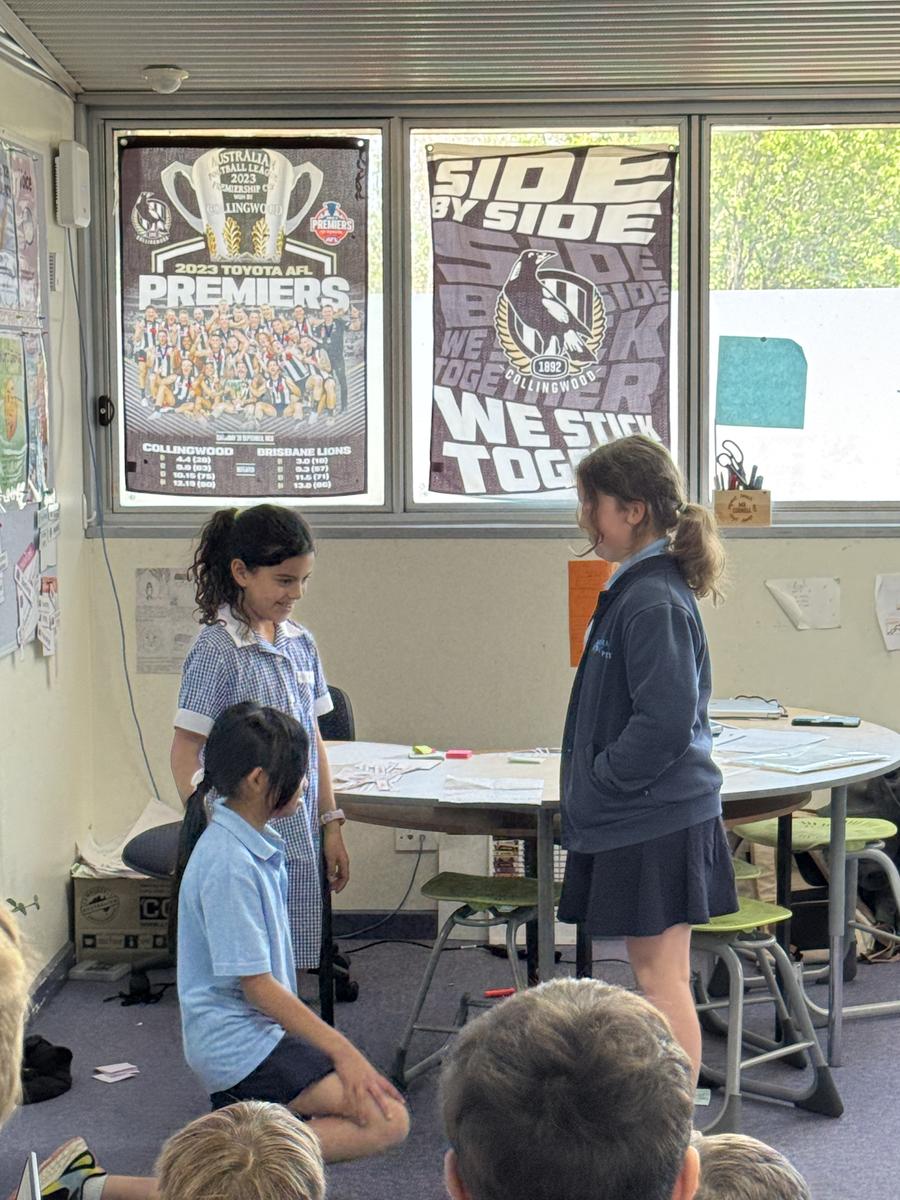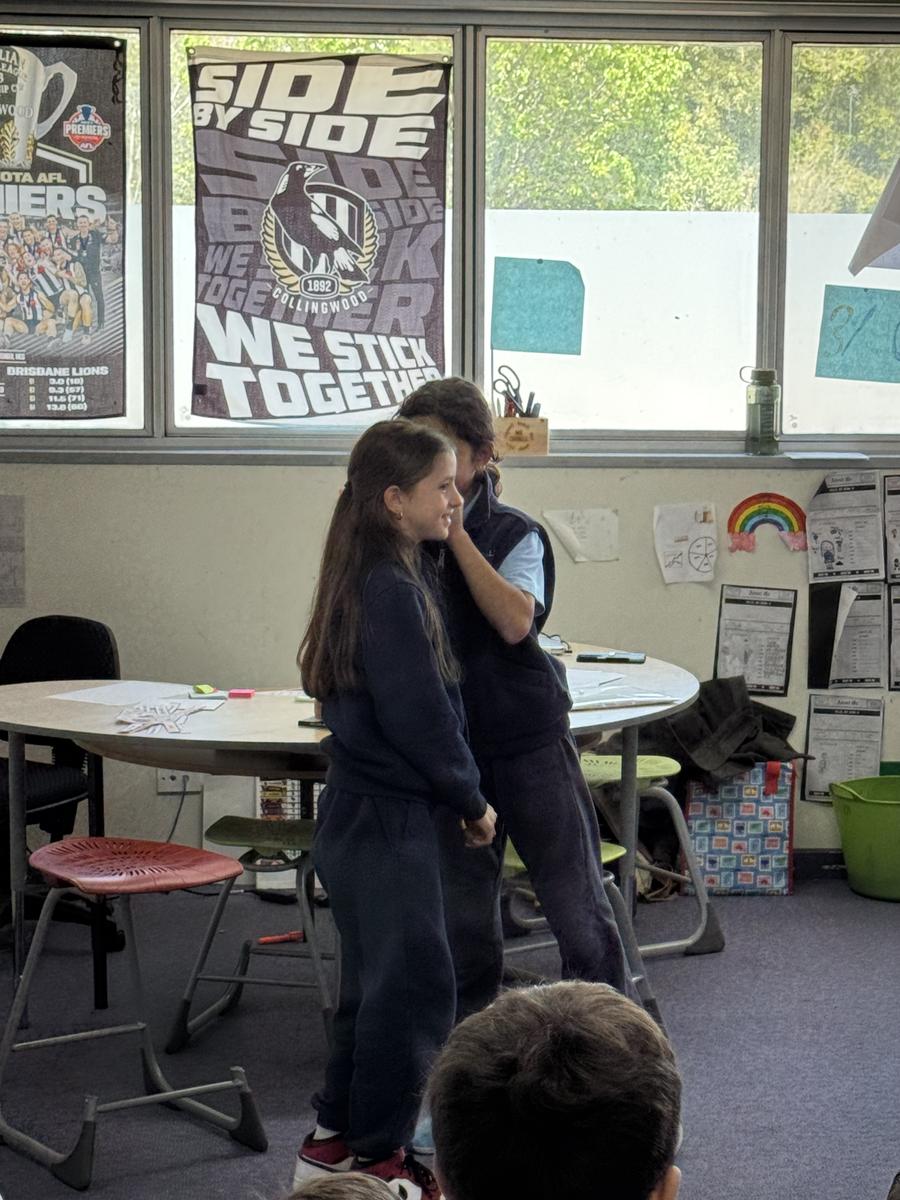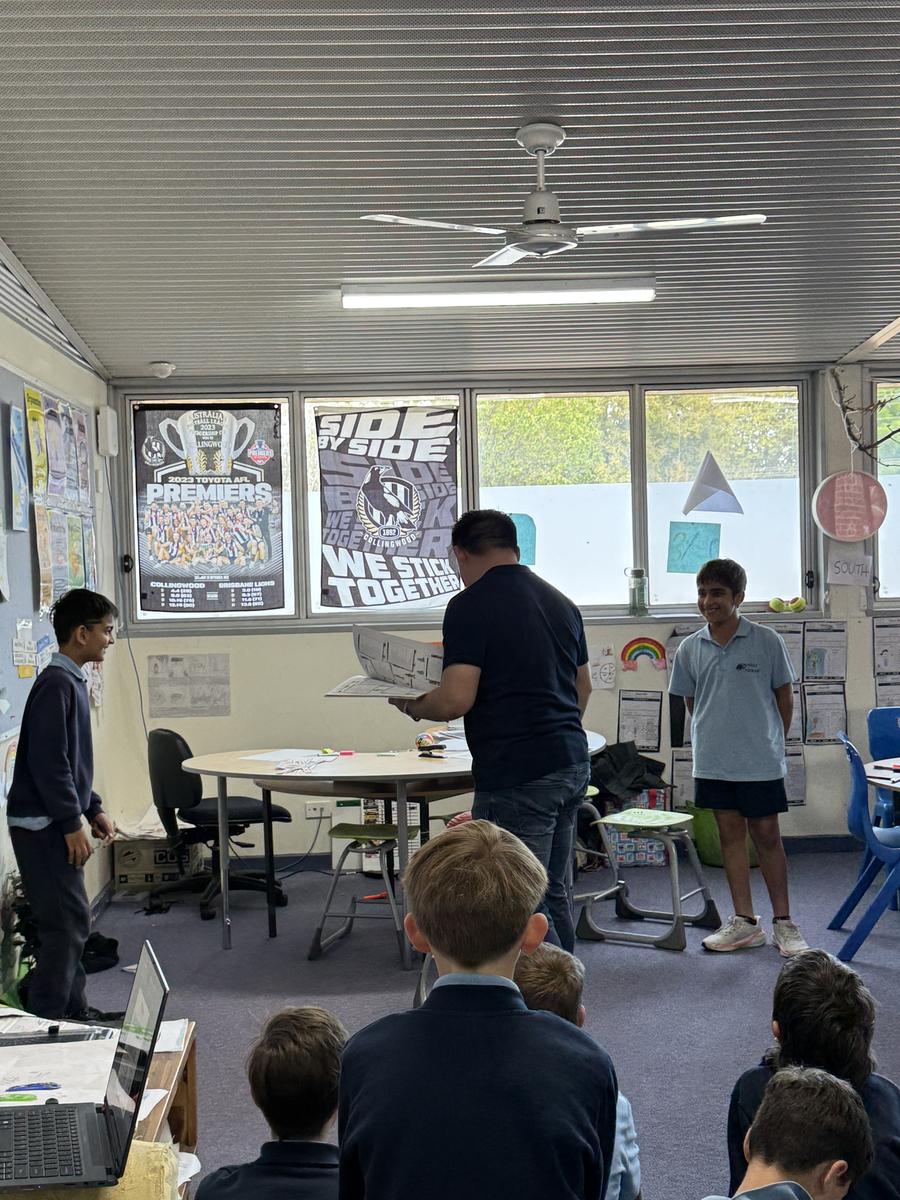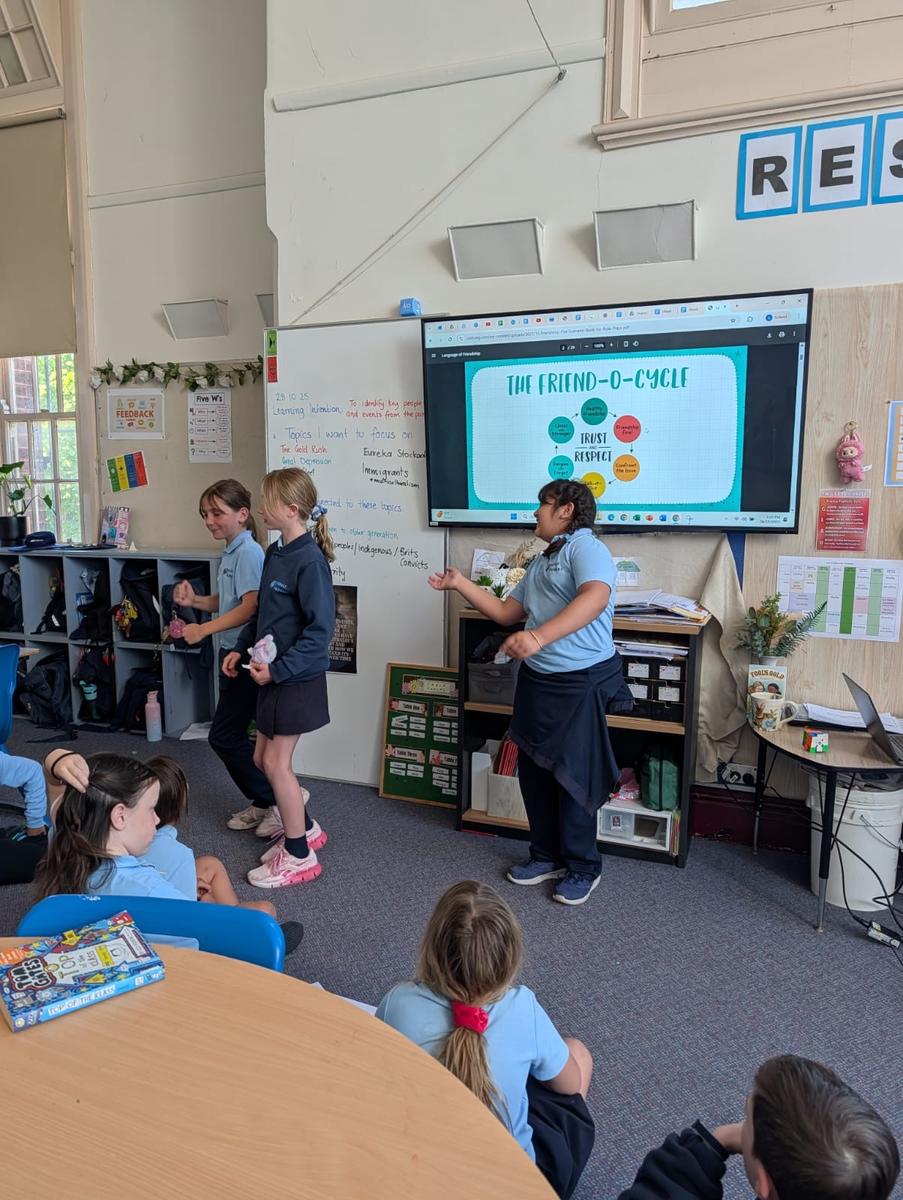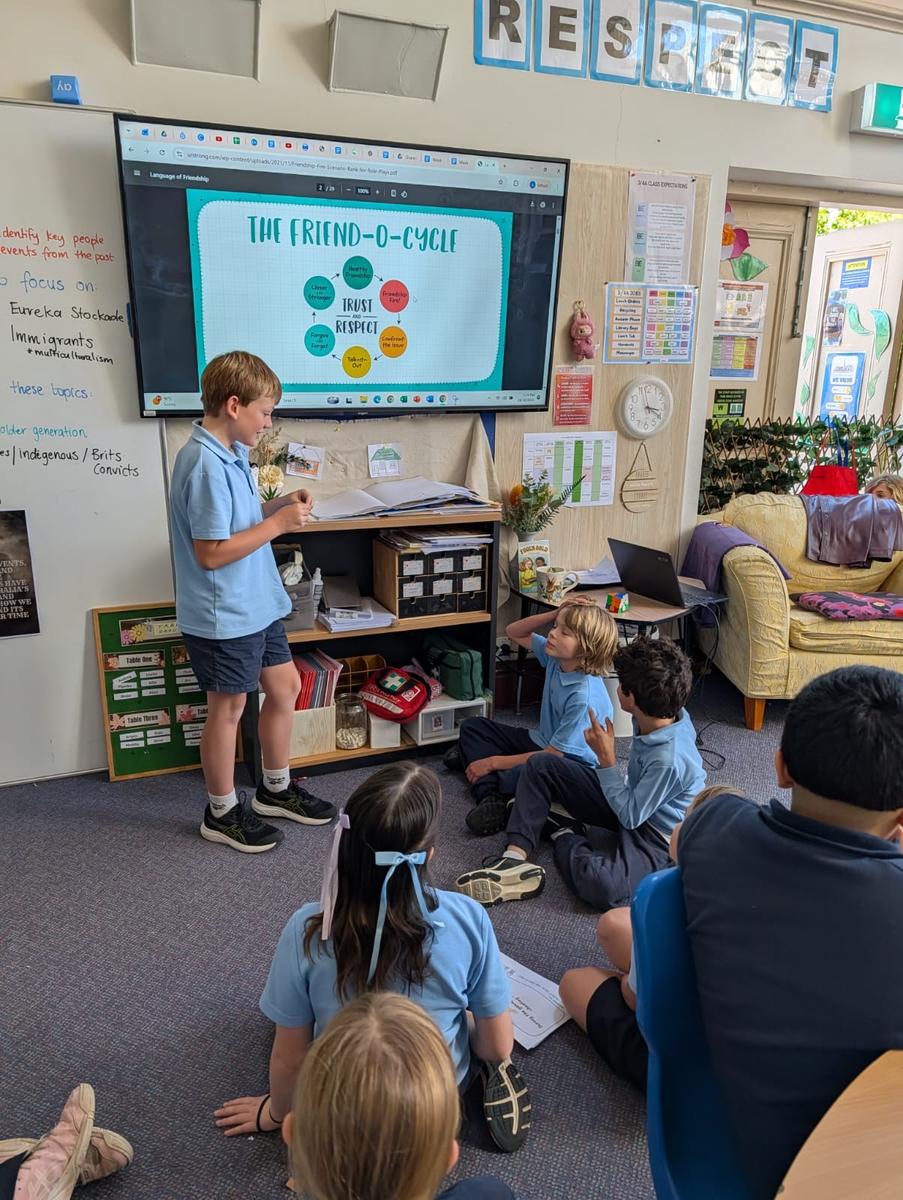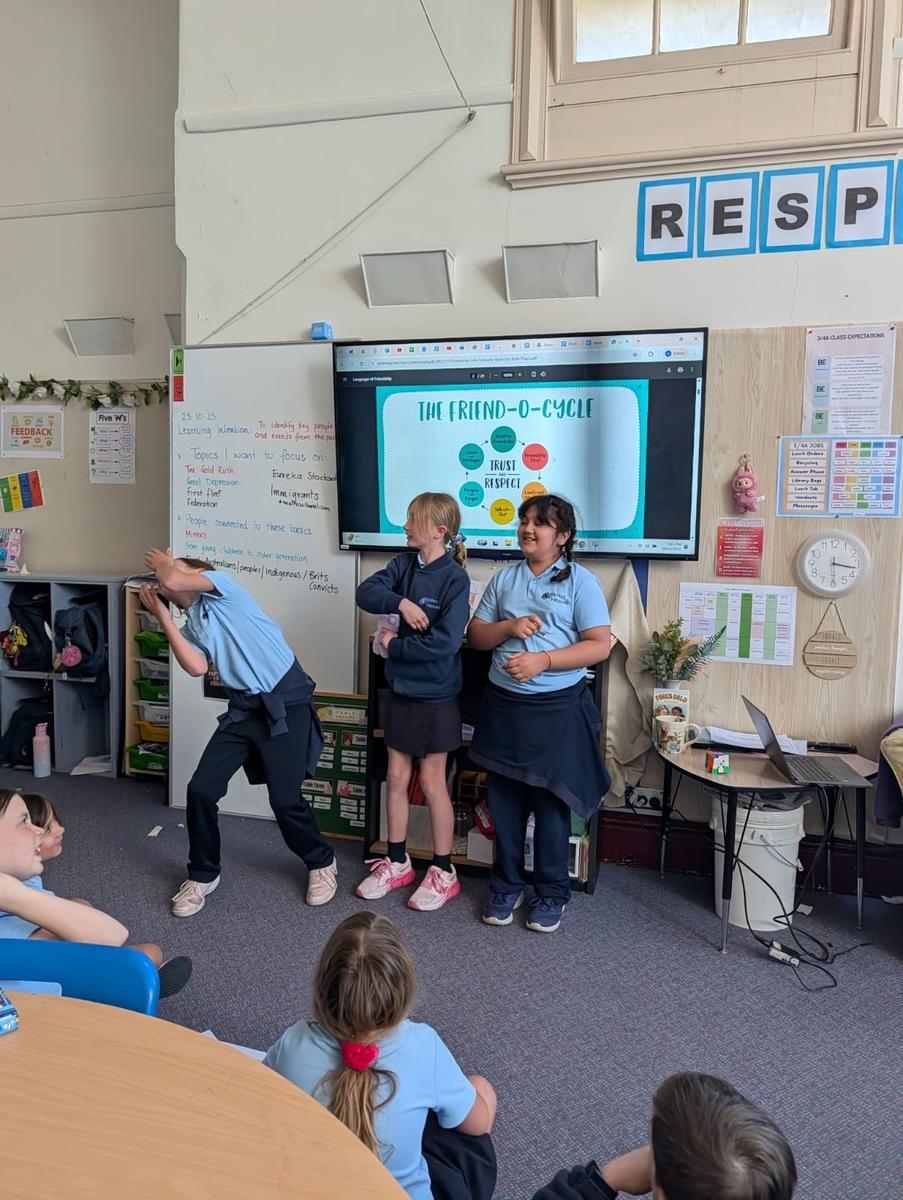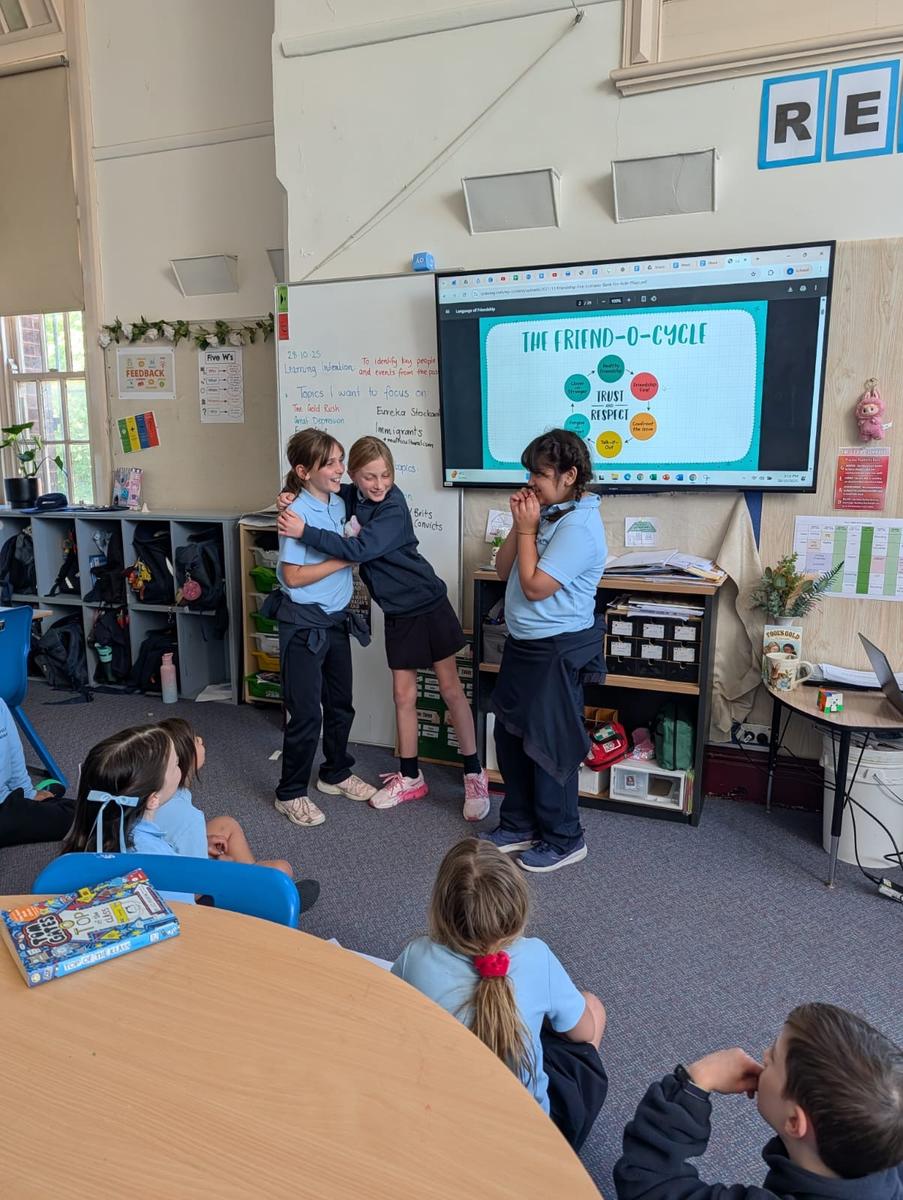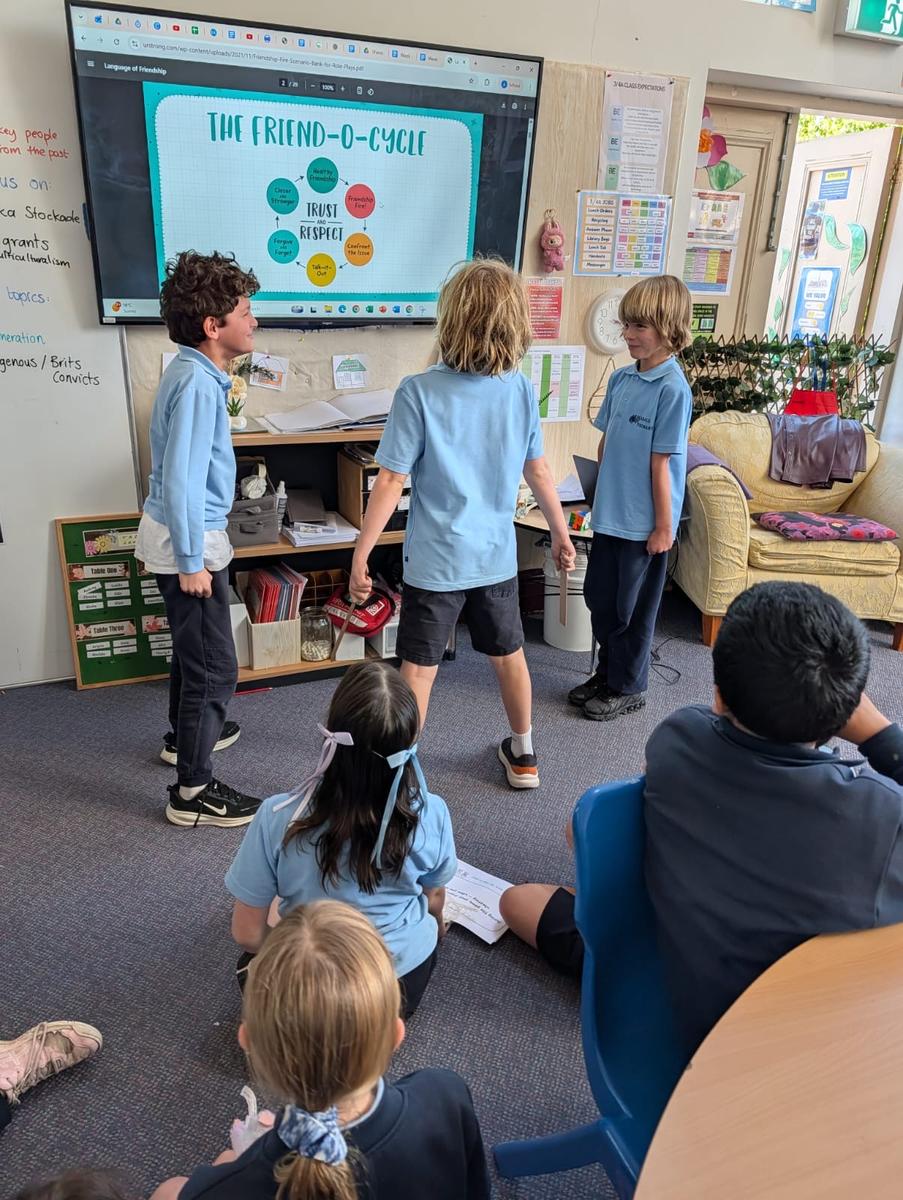Year 3/4 Bulletin

Whole (Shared Session)
This week we revisited Friendship Fires as part of our URSTRONG Friendology program. It’s something we’ve explored earlier in the year, but we revisited the concept to be proactive in how students’ are approaching challenges in friendships at the moment at school.
We started as a class by looking at the Friendship Fire sheet and colour coding the examples based on how serious students thought each one was. To tune in, I asked everyone to hold up a certain number of fingers to show how big they thought the fire was. One finger for a tiny spark, two or three for a smouldering fire, and four or five for a bush fire. This got lots of discussion going straight away, especially when people had different opinions about the same situation.
As we talked, I asked questions like:
- “How big do you think this fire really is?”
- “What could you say or do to put it out?”
- “How might your friend be feeling at this moment?”
- “Is this a talk-it-out moment, or something that might just cool down with time?”
The focus was on helping students realise that everyone experiences friendship challenges differently and that most can be solved when we stop, think, and talk things through calmly.
Small (Group Session)
Students worked through a sheet matching their problems to the “scale” on the right.
After our class discussion, students worked in small groups to act out short scenarios. Each group got a situation, like “your friend changes the rules of a game” or “someone forgets to save you a seat.” They had around a minute to plan and use props to bring the moment to life.
Scenario | Type of Fire | Talk-It-Out Focus | Positive Reaction Example |
| Your friend forgets to save you a seat at lunch. | Tiny Spark | “I felt left out when you didn’t save me a seat.” | “Sorry, I didn’t notice — let’s sit together tomorrow.” |
| Your friend changes the rules during a game to make you lose. | Smouldering Fire | “I felt frustrated because it didn’t feel fair.” | “I see that. Let’s restart with clear rules.” |
| Your friend doesn’t invite you to their birthday party but says they didn’t have one. | Bush Fire | “I felt hurt because I thought we were close.” | “I’m sorry. I didn’t mean to lie — I should’ve told you the truth.” |
| Someone tells you your friend said something mean behind your back. | Bush Fire | “I felt really sad hearing that.” | “I didn’t say that — can we talk about what really happened?” |
| Your friend rolls their eyes or walks away when you talk. | Smouldering Fire | “It made me feel ignored when you did that.” | “I’m sorry, I didn’t mean to make you feel that way.” |
| Your friend forgets it’s your birthday. | Tiny Spark | “I felt disappointed when you didn’t say happy birthday.” | “Oh no! I’m sorry — happy birthday!” |
| You tell your friend a secret and they share it with others. | Bush Fire | “I felt betrayed when you told my secret.” | “You’re right. I shouldn’t have told anyone — I’m sorry.” |
| You and your friend both want to be first in line and start arguing. | Tiny Spark | “I felt annoyed when we argued about going first.” | “Let’s take turns or do rock-paper-scissors.” |
| Your friend laughs when you make a mistake during class. | Smouldering Fire | “I felt embarrassed when you laughed at me.” | “I didn’t mean to make fun of you — I’m sorry.” |
| Your friend blames you for something they did. | Bush Fire | “I felt upset because it wasn’t my fault.” | “I’ll tell the truth — it was me.” |
Before starting, I asked:
- “How will you show how each person is feeling?”
- “What would a positive reaction sound like?”
- “What’s a kind way to respond if this happened to you?”
These roleplays were great reminder that these small friendship bumps are completely normal, and practising how to respond helps everyone feel more confident and prepared when tricky moments come up.
Allira, Richard, Cli
Year 3/4 Team

